
 Review of Kenneth Eade's The Involuntary Spy: Who among us realised that Monsanto has huge plans for Ukraine? We learn that Ukraine's current president, Poreschenko, has been in cahoots with the US for years, and that Monsanto has been buying up land and lobbying to change Ukraine's anti-GMO laws, inserting a key clause in an EU Association agreement.
Review of Kenneth Eade's The Involuntary Spy: Who among us realised that Monsanto has huge plans for Ukraine? We learn that Ukraine's current president, Poreschenko, has been in cahoots with the US for years, and that Monsanto has been buying up land and lobbying to change Ukraine's anti-GMO laws, inserting a key clause in an EU Association agreement.
If you wonder what on earth the US is messing around in Ukraine for, this thriller series may actually have some of the inside story.
Kenneth Eade is an international and internet lawyer whose expertise includes the scientific history and laws associated with genetically modified organisms (GMOs). He writes terrific novels around these themes.
 Not normally a fan of American spy thrillers, I was, however, intrigued, in light of Edward Snowden, to find that the subject of Eade's spy thriller series, The Involuntary Spy was a US whistleblower who fled to Russia.
Not normally a fan of American spy thrillers, I was, however, intrigued, in light of Edward Snowden, to find that the subject of Eade's spy thriller series, The Involuntary Spy was a US whistleblower who fled to Russia.
Downloading a 'sample' of the book, I was further drawn in by the politics of a car chase through Kiev, as an unsafe place for American whistleblowers in transit to Russia. Hmm, this writer knew a lot about Russia and Ukraine that you don't hear on CNN or read in Murdoch's press. I looked up his biography and discovered that, after practising law for 30 years in the United States, becoming an expert in GMO law, he was disbarred for five years over a disagreement about a Russian goldmine, was married to a Russian woman and lived, apparently more or less in exile, in France. Kenneth Eade's 'faction' novels might have been partly lived as well as derived from real science.
Further reading disclosed that this was an industrial spy novel with a serious ecological and scientific base. Seth, the protagonist, is a genetic biologist attracted to the industry by the ideology of GMOs solving 'world hunger' as well as the prestige and perks of his position. He works for a multinational giant called Germinat, which derives billions from world-wide sales of a pesticide called 'Cleanup Ready' and the promotion of crops it has engineered to be able to survive this ubiquitous and persistant product.
Despite some awareness of French Professor Seralini's (2012-2014) experiments using Monsanto insecticide-resistant GMO sources to feed laboratory rats over a long period of time and how the rats suffered grave consequences which had not happened when they had been fed the actual insecticide, The Reluctant Spy educated me significantly more on the problems with industrial GMOs. I learned that Seralini was not the first scientist to be persecuted for publishing results that put GMOs in a bad light. The author tells us about Arpad Pusztai, who was discredited at first with his 1998 studies (one of the first) on GMO potatoes, showing damage to the gut and immune system.
I knew that Monsanto was extremely powerful and had backed up its patents on genetically modified organisms with legal suits. I did not realise that its position as 'owner' of organisms it has engineered could be used to stop people it did not approve of from testing its scientific claims.[1]
And I learned that, contrary to claims of GMO safe process, organisms used to splice genes have not been limited to the relatively safe unicellular ones; genes from complex organisms with the capacity for multiple and unpredictable outcomes were surrepticiously built into the foundations of today's GMOs.
"It was always thought that bacterial genes were the best form of genes for genetic engineering. Bacterial genes were not as complicated as genes from most plants and animals, because they did not have introns, which could create hundreds or even thousands of different proteins from a single gene, meaning that the gene could not only produce the desired trait, but thousands of others, so there was no chance that the bacterial gene could produce proteins other than the ones it was intended to create. However, when the Bt gene was first introduced into plants, it produced very little Bt protein. So, to pump up production, they added introns because those increased Bt protein production. Instead of testing for whether the introns would also cause the production of other unintended proteins, scientists went with their original assumption that the gene would produce only the Bt protein and nothing else. " Eade, Kenneth (2015-09-15). An Involuntary Spy Series Box Set One: Books one and two (Kindle Locations 857-858). Times Square Publishing. Kindle Edition.)
Seth realises there is a risk that organisms receiving these genes could try to correct what they perceived as a genetic irregularity in themselves and that such an attempted correction could give rise to tumours.
Back at the laboratory, Seth is placed in a position where, like Arpad Pusztai, he is expected to conduct quick and dirty experiments, to back up his employer's dishonest safety claims. His boss, Bill, is 'somewhat of a social climbing stuffed shirt', 'more of an administrator than a scientist' despite 'impressive scientific credentials'. When Seth reports problems, Bill says, irritatingly, "You’re gonna have to do better than shrunken rat’s balls, Seth," and sends him back to the lab.
Typical of the industry, Seth is surrounded by colleagues too fearful of being out of a job to disobey their slickly tyrannical employer, but Seth cannot let go of the truth.
"Genetically modified foods were a grab bag of pesticides, allergens, toxins, dormant viruses and antibiotic resistant molecules that were being consumed by humans for the first time. It was only a matter of time before their immune systems become unable to recognize what to protect against. In this experiment, the entire American public were the test rats and the chemical companies the only winners." Eade, Kenneth (2015-09-15). An Involuntary Spy Series Box Set One: Books one and two (Kindle Locations 1874-1877). Times Square Publishing. Kindle Edition.
Seth discovers more and more apalling things about Germinat, and that people in the United States Government are complicit with its illegal activities. If he goes to the authorities, higher-ups with a stake in Germinat are likely to have him charged as a traitor. He realises his life is in danger. He plans to leave the country. Eventually he has to flee the country. At an unscheduled plane stop in Kiev he narrowly avoids assassination in that state where the elites are so cosy with the US ones.
Half of the book is set in Russia in a seamless and entertaining back and forth. Seth finishes up in a Russian outpost where there is a lot of heavy drinking and promiscuous sex, and he falls in love with a beautiful local. When he tries to negotiate his way back into the United States the author, an international lawyer, gives us some insight into the whistleblower's legal position.
At the end of the first book Kenneth Eade has provided an essay documenting the background to his novel. I cite some highlights here:
[Since 1994] "Genetically engineered foods are in almost all processed food products in the United States. A simple reading of the label will reveal one or more of the following ingredients in every one of them: corn or corn oil, cottonseed oil, canola oil (made from rapeseed oil, a GMO product), soy and/ or soybean oil, and/ or high fructose corn syrup. Genetically engineered corn and soy are used for most of the animal feed in the United States. And GMO sweet corn is now appearing in stores. There are no current federal labeling laws for GMO products, and two labeling measures in California and Washington have been defeated, in the wake of heavy spending of millions of dollars against the measures by Monsanto, Dow Chemical, Bayer, Coca Cola, Kellogg’s, and many others whose name you will see on products on your breakfast, lunch or dinner table. A member of the board of directors of Mc Donalds and one from Sara Lee sit on the board of directors of Monsanto." (Eade, Kenneth (2015-09-15). An Involuntary Spy Series Box Set One: Books one and two (Kindle Locations 786-792). Times Square Publishing. Kindle Edition. ).
Ukraine story: To Russia for Love
In the second book in the series, To Russia for Love, the action takes place in Kiev. It's still about GMOs. Whilst some of you may be aware that Ukraine's location near the Caspian Sea oil reserves and among various oil and gas pipelines thence emanating makes it an object of international interest, who among us realised that Monsanto has huge plans for Ukraine?
We learn that Ukraine's current president, Poreschenko, has been in cahoots with the US for years, and that Monsanto has been buying up land and lobbying to change Ukraine's anti-GMO laws, inserting a key clause in an EU Association agreement. Impoverished Ukraine farmers do not have much defense against financial inducements from Monsanto. Ukraine is the 'bread basket of Europe' with superb soil its main asset, but it is losing control of that last precious resource. And Monsanto benefits from the chaos of US prompted 'regime change' and civil war.
"In late 2013, Victor Yanukovych, the former president of Ukraine, rejected a European Union association agreement tied to a $ 17 billion International Monetary Fund (IMF) loan. Instead, he chose a Russian aid package worth $ 15 billion plus a discount on Russian natural gas. This decision led to his forcible removal from office in February 2014 and the current crisis and devastating civil war. The present government of the Ukraine pursued the IMF loan and a European Union Association Agreement. On July 28, 2014, the Oakland Institute released a report entitled “Walking on the West Side: the World Bank and the IMF in the Ukraine Conflict,” which revealed that the World Bank and the IMF, under the terms of their $ 17 billion loan to Ukraine, would open the country to genetically-modified (GM) crops in agriculture. Because of its rich soil, Ukraine has always been referred to as the “breadbasket of Europe.” According to the Oakland Institute’s report, “Whereas Ukraine does not allow the use of genetically modified organisms (GMOs) in agriculture, Article 404 of the EU agreement, which relates to agriculture, includes a clause that has generally gone unnoticed: it indicates, among other things, that both parties will cooperate to extend the use of biotechnologies. There is no doubt that this provision meets the expectations of the agribusiness industry. As observed by Michael Cox, research director at the investment bank Piper Jaffray, ‘Ukraine and, to a wider extent, Eastern Europe, are among the most promising growth markets for farm-equipment giant Deere, as well as seed producers Monsanto and DuPont’. From "Afterword" in Eade, Kenneth (2015-09-15). An Involuntary Spy Series Box Set One: Books one and two, Times Square Publishing. Kindle Edition.
"[...] Recent efforts to speed up the annexation of Ukrainian agriculture have been documented by the Oakland Institute’s report. Their fact sheet on the “Corporate Takeover of Ukrainian Agriculture” shows how the law firm of “Frishberg and Partners” found loopholes in a moratorium on Ukrainian agricultural land sales, and suggested a two-step approach to circumventing this moratorium, which remains in force until January 1, 2016. The first step described by Frishberg is to lease Ukrainian agricultural land instead of purchasing it. This, when combined with legal purchases of industrial spaces adjoining the land, results in ownership. The second step is to buy large amounts of shares in leading Ukrainian agribusinesses and then reform these companies from the inside. This is a strategy that international agribusiness giants such as Cargill, Monsanto and DuPont have employed. For example, in 2014 Cargill bought a five percent share in the largest land bank in Ukraine. From the requirements such as those listed in the EU association agreement it is clear that Ukraine is not being set up for economic prosperity and independence, but for international exploitation. While these develops, on the surface, may appear to be innocent, as Big Ag would prefer Ukrainian farmers and the civilian population to believe, the links between government organizations and agribusiness are clear. The entry point into these connections can be found on the board of the US-Ukraine Business Council. The U.S.-Ukraine Business Council’s Executive Committee contains representatives from Monsanto, John Deere, DuPont Pioneer, Eli Lilly, and Cargill. These companies are taking control of Ukraine’s agricultural sector with the aim of introducing their organizations are at the forefront of introducing GMO products. For the past two years, thanks to the civil war, the news coming out of Ukraine has been providing these U.S. based argi-giants with the perfect cover to exploit Ukraine’s resources. Since the declaration of its independence in 1992, international companies have been colonizing Ukraine’s agricultural sector." From "Afterword" in Eade, Kenneth (2015-09-15), second book of An Involuntary Spy Series Box Set One: Books one and two, Times Square Publishing. Kindle Edition.
Dramatising the truth in novels has a long tradition. Technoscience thrillers are a rising genre with the ability to effectively situate the reader in a novel technical environment. Kenneth Eade's highly enjoyable novels carry profound political and scientific messages.
NOTES
[1]The situation is dangerously ludicrous:
"Moreover, due to legal and copyright restrictions surrounding GMO patents, independent scientists must ask for the chemical companies’ permission before publishing research on their products. As a result, almost all of the long-term animal feeding studies that have ever been conducted on GMO feed have been carried out by the biotech companies themselves, with their own rules and using their own standards of reporting. What few independent studies have been conducted have shown a range of adverse health effects from reduced fertility to immune system dysfunction, liver failure, obesity and cancer." (Loc 3722 of 6067 in Eade Kenneth (2015-09-15), first book of An Involuntary Spy Series Box Set One: Books one and two, Times Square Publishing. Kindle Edition.
).
 If you haven't come across Sean Foo before, you are in for a treat. His economic, politically focused analyses, are usually brilliant. He approaches the world with an open mind and seems able to grasp a big picture. His take on Marine Le Pen's National Rally, and the clips he illustrates her policies with, are extremely well-chosen. It is also worth reading the comments under his video.
If you haven't come across Sean Foo before, you are in for a treat. His economic, politically focused analyses, are usually brilliant. He approaches the world with an open mind and seems able to grasp a big picture. His take on Marine Le Pen's National Rally, and the clips he illustrates her policies with, are extremely well-chosen. It is also worth reading the comments under his video.
 (Update:
(Update: 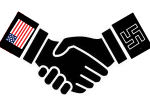 Anti-war activists usually rightly oppose military aggression by the United States and its allies. Currently, however, many support US-NATO against Russia, in what has been labeled by the corporate newsmedia as unjustified and unprovoked Russian aggression against the sovereign nation of Ukraine.
Anti-war activists usually rightly oppose military aggression by the United States and its allies. Currently, however, many support US-NATO against Russia, in what has been labeled by the corporate newsmedia as unjustified and unprovoked Russian aggression against the sovereign nation of Ukraine.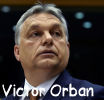
 Hungary’s Prime Minister Viktor Orban has apparently called on Hungarians to beware of the power of the Sith in his latest speech on migration crisis in Europe. He also declared Eastern and Central Europe the last ‘migrant-free zone.’ "We should never underestimate the power of the dark side," the prime minister said, referencing Star Wars as he referred to the plots of those behind the “migrant invasion,” adding that they “have no solid structure but extensive networks.” Article first published 23 October on RT with the title,
Hungary’s Prime Minister Viktor Orban has apparently called on Hungarians to beware of the power of the Sith in his latest speech on migration crisis in Europe. He also declared Eastern and Central Europe the last ‘migrant-free zone.’ "We should never underestimate the power of the dark side," the prime minister said, referencing Star Wars as he referred to the plots of those behind the “migrant invasion,” adding that they “have no solid structure but extensive networks.” Article first published 23 October on RT with the title, 
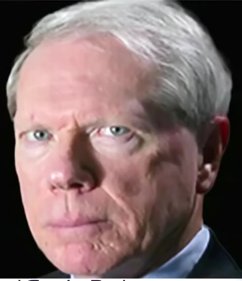
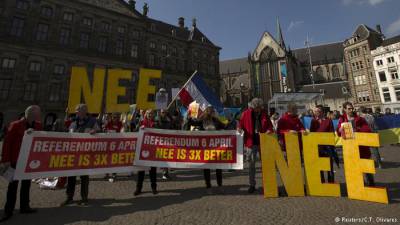
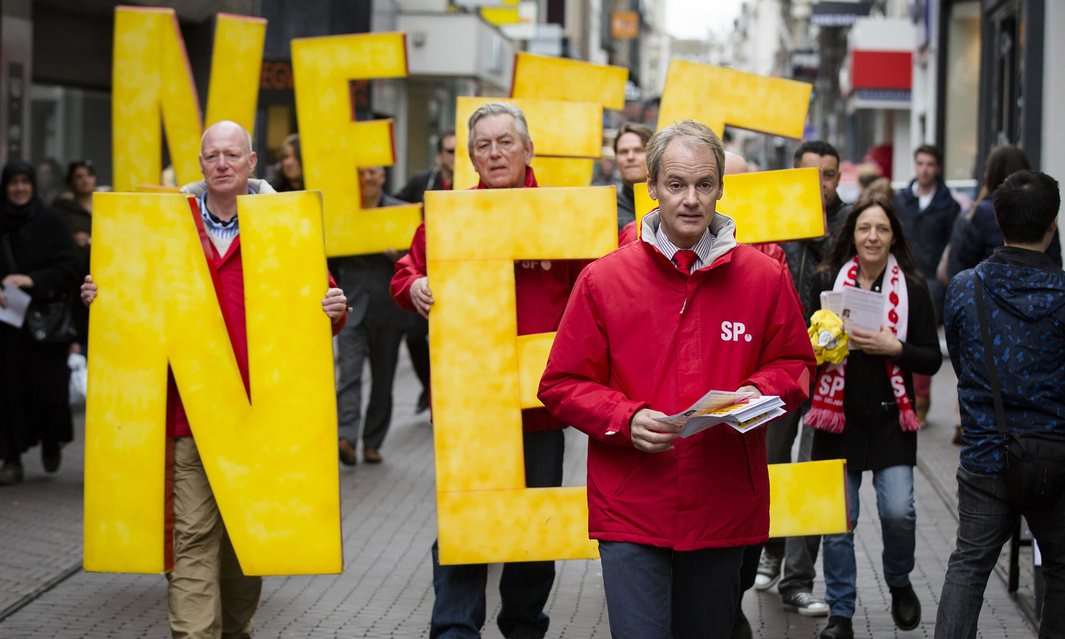

 Review of Kenneth Eade's The Involuntary Spy: Who among us realised that Monsanto has huge plans for Ukraine? We learn that Ukraine's current president, Poreschenko, has been in cahoots with the US for years, and that Monsanto has been buying up land and lobbying to change Ukraine's anti-GMO laws, inserting a key clause in an EU Association agreement.
Review of Kenneth Eade's The Involuntary Spy: Who among us realised that Monsanto has huge plans for Ukraine? We learn that Ukraine's current president, Poreschenko, has been in cahoots with the US for years, and that Monsanto has been buying up land and lobbying to change Ukraine's anti-GMO laws, inserting a key clause in an EU Association agreement.
 In this episode of the Keiser Report, Max Keiser and Stacy Herbert discuss the impossible demand from the Greek voters that both austerity ends and that they remain in the euro as currently arranged. They also look at a parallel “future-tax” crypto currency as a possible answer to Greece’s problems. In the second half, Max interviews Liam Halligan, editor-at-large at BNE.eu and columnist at the Telegraph, about the latest on the unpayable debt crisis in Greece. Liam suggests a Grexit will happen but that Greece won’t be the first European nation to leave the euro.
In this episode of the Keiser Report, Max Keiser and Stacy Herbert discuss the impossible demand from the Greek voters that both austerity ends and that they remain in the euro as currently arranged. They also look at a parallel “future-tax” crypto currency as a possible answer to Greece’s problems. In the second half, Max interviews Liam Halligan, editor-at-large at BNE.eu and columnist at the Telegraph, about the latest on the unpayable debt crisis in Greece. Liam suggests a Grexit will happen but that Greece won’t be the first European nation to leave the euro.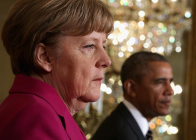
 Ulson Gunnar - NEO
Ulson Gunnar - NEO
Recent comments